第55章 Chapter 19(2)
Falsehood, even in your day, was not common between gentlemen and ladies, social equals. The lie of fear was the refuge of cowardice, and the lie of fraud the device of the cheat. The inequalities of men and the lust of acquisition offered a constant premium on lying at that time. Yet even then, the man who neither feared another nor desired to defraud him scorned falsehood. Because we are now all social equals, and no man either has anything to fear from another or can gain anything by deceiving him, the contempt of falsehood is so universal that it is rarely, as I told you, that even a criminal in other respects will be found willing to lie. When, however, a plea of not guilty is returned, the judge appoints two colleagues to state the opposite sides of the case. How far these men are from being like your hired advocates and prosecutors, determined to acquit or convict, may appear from the fact that unless both agree that the verdict found is just, the case is tried over, while anything like bias in the tone of either of the judges stating the case would be a shocking scandal.""Do I understand," I said, "that it is a judge who states each side of the case as well as a judge who hears it?""Certainly. The judges take turns in serving on the bench and at the bar, and are expected to maintain the judicial temper equally whether in stating or deciding a case. The system is indeed in effect that of trial by three judges occupying different points of view as to the case. When they agree upon a verdict, we believe it to be as near to absolute truth as men well can come.""You have given up the jury system, then?"
"It was well enough as a corrective in the days of hired advocates, and a bench sometimes venal, and often with a tenure that made it dependent, but is needless now. No conceivable motive but justice could actuate our judges.""How are these magistrates selected?"
"They are an honorable exception to the rule which discharges all men from service at the age of forty-five. The President of the nation appoints the necessary judges year by year from the class reaching that age. The number appointed is, of course, exceedingly few, and the honor so high that it is held an offset to the additional term of service which follows, and though a judge's appointment may be declined, it rarely is. The term is five years, without eligibility to reappointment. The members of the Supreme Court, which is the guardian of the constitution, are selected from among the lower judges. When a vacancy in that court occurs, those of the lower judges, whose terms expire that year, select, as their last official act, the one of their colleagues left on the bench whom they deem fittest to fill it.""There being no legal profession to serve as a school for judges," I said, "they must, of course, come directly from the law school to the bench.""We have no such things as law schools," replied the doctor smiling. "The law as a special science is obsolete. It was a system of casuistry which the elaborate artificiality of the old order of society absolutely required to interpret it, but only a few of the plainest and simplest legal maxims have any application to the existing state of the world. Everything touching the relations of men to one another is now simpler, beyond any comparison, than in your day. We should have no sort of use for the hair-splitting experts who presided and argued in your courts.
You must not imagine, however, that we have any disrespect for those ancient worthies because we have no use for them.
On the contrary, we entertain an unfeigned respect, amounting almost to awe, for the men who alone understood and were able to expound the interminable complexity of the rights of property, and the relations of commercial and personal dependence involved in your system. What, indeed, could possibly give a more powerful impression of the intricacy and artificiality of that system than the fact that it was necessary to set apart from other pursuits the cream of the intellect of every generation, in order to provide a body of pundits able to make it even vaguely intelligible to those whose fates it determined. The treatises of your great lawyers, the works of Blackstone and Chitty, of Story and Parsons, stand in our museums, side by side with the tomes of Duns Scotus and his fellow scholastics, as curious monuments of intellectual subtlety devoted to subjects equally remote from the interests of modern men. Our judges are simply widely informed, judicious, and discreet men of ripe years.